Reiki pioneer Paul Mitchell responds to Catholic bishops' guidelines on Reiki
(Editor's note: Before he met Hawayo Takata in 1978, Paul Mitchell had spent 10 years studying for the Catholic priesthood and later taught religion in a Catholic high school. He was one of the 22 masters trained by Takata. Mitchell and his wife Susan have practiced Reiki for more than three decades. He sent this response to the U.S. Conference of Catholic Bishops as well as to The Reiki Digest.)
Response to the US Conference of Catholic Bishops on Guidelines for Evaluating Reiki as an Alternative Therapy
By Paul D. Mitchell
I received my Reiki training from Mrs. Hawayo Takata, the woman who brought Reiki out of Japan to Hawaii about 1934. As I am one of the 22 masters that she trained, I can speak with some authority about how she understood Reiki and what she taught. I have been practicing Reiki for 31 years and am also a practicing Catholic.
Hawayo Takata defined the Japanese word “Reiki” as universal life energy or God-power. It was clear to her that this energy came from the Source of all life and being. The bishops analysis of the practice of Reiki came from purely academic research without one interview with anyone who practiced Reiki whether Catholic or otherwise. Academic research without the benefit of human experience is simply…academic research. In any case, the bishop’s evaluation focused on two fronts: Healing by Divine grace and Healing by Natural Powers.
Reiki as a natural means of healing
The bishops attest that “universal life energy” is unknown to natural science. Is this really true? Can we say that life energy is unknown to human experience? What makes a seed special? Is it not that it contains a spark of life? What is the difference between a living and a dead plant, animal, human being, or a living or dead cell? There is an energy of life. It is universal to all living things. Does natural science know much about the energy of life? No. Does that make it not real? Not at all. Universal life energy is simply a name for the energy of life, which all living things have an intimate relationship with, or they would not be alive.
Western science has very little to say about life energy. Why is that? Possibly because our scientific method is limited by its tools of measurement. Plato posited the existence of atoms and it took centuries for science to develop the technology to verify their existence. What tools have been developed to measure the energy of life?
The National Center for Complementary and Alternative Medicine, under the National Institutes of Health has funded 5 studies on Reiki. There have been other studies. The difficulty remains that we do not have the mechanisms to measure subtle energies.
The placebo effect is known to medical science and it is unexplainable. Research subjects know that they may receive a treatment that will help them. Of those that are given the placebo, approximately 1/3 will show a benefit. We do not know how this happens. What this tells us is that there are huge gaps in our knowledge and understanding of the dynamics of healing. Why is it that the placebo effect is not the target of massive research?
Assign a hundred million dollars to researching life energy and we will know much more about it. Why would the bishops ask us to avoid something that science hasn’t researched although millions have found it helpful and useful? While it is now known how aspirin works, it was prescribed and used for 70 years before the mechanism of action was understood scientifically.
While we often assume that the essence of scientific research is to understand that which is unknown, it is more accurate to say that scientific research is about measuring. True science is much more impressed by what it doesn’t know than by what it does know. Why refer to this area of unknown as “no man’s land” as the bishops did? The spirit of scientific inquiry is to endeavor to understand our natural world as experienced by humanity. For all of our advances in medicine, there is a huge area of the unknown and unexplored in the realm of health and healing. Where a given scientific community chooses to focus its research at any given time in history is not the measure of reality, simply a choice affected by many factors. In our country, one of the major factors in medical and health care research is the drug company lobby.
I cannot accept the bishop’s conclusion that Reiki has no support from natural science. First, because the existence of the energy of life cannot be denied even though our tools for such measurement are understandably limited. Further because there have been and will continue to be studies on the effect of Reiki treatment. We must be fair in our assessment of studies being inconclusive. Just because we cannot measure something at this time does not mean it does not exist or is not beneficial.
Reiki and the healing power of Christ
Hawayo Takata identified Reiki as coming from God. The bishops assert that for Christians, the access to divine healing is by prayer to Christ as Lord and Savior. Is this the only access to divine healing available to Christians? Jesus taught us to pray to the Father for whatever we need. Was he excluding healing in this teaching? The gift of healing is listed by St. Paul as one of the gifts of the Holy Spirit. Does the Holy Spirit grant the gift of healing to Catholics and Christians alone?
There are some basic misunderstandings about Reiki that the bishops concluded from their academic research. Mikao Usui did not invent Reiki, he received it. He was a gifted healer, but more important, he was able to pass on this gift. It is a blessing to mankind. Do all human beings have the potential to be healers? The fact proves the possibility. Throughout human history there have been people blessed with a special touch. This is simply true.
The gift of healing touch can be passed on. Reiki is one form of this passing on. Can we explain it? Not really. It is not necessary to fear or exclude what we cannot explain adequately. One of the bishop’s main arguments against Reiki as divine healing is that the practitioner has healing power at their human disposal. In truth it is paradoxical, it is and it isn’t. Life energy does flow through the touch of the Reiki practitioner but the outcome is not predictable. Sometimes an obvious health benefit is seen, sometimes not. What does seem predictable is that the individual feels better. In this way it is very similar to prayer. We may not get what we want, but if we pray, we always feel better. Feeling better is a significant part of healing.
For some people who have experience with prayer, doing Reiki is prayerful. I have been studying and practicing Centered Prayer as taught by Fr. Thomas Keating. Resting in God is how he describes this form of prayer. Often people doing Reiki feel that they are resting in God and in that resting and allowing, well-being is enhanced for the one receiving treatment.
If one looks on the Internet, the information about Reiki can be very confusing. Reiki is very simple and very profound. The simplicity and the profundity can be difficult to comprehend and explain, and each person with experience of Reiki does the best to explain their experience in the terms that they are familiar with given their particular worldview. The explanation is not the experience.
To do justice to an investigation of Reiki in relationship to the Catholic faith, one must begin by asking questions of Catholics who have had experience with Reiki. Perhaps the first question might be: “How has Reiki affected your faith as a Christian and a Catholic?” This is the starting point. There are other questions that can follow. But without this research grounded in real human experience, everything else is simply…academic.











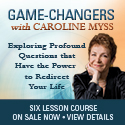
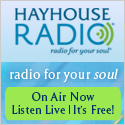






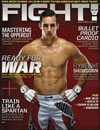

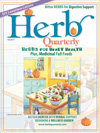
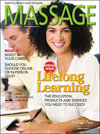
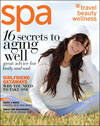
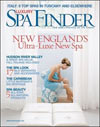
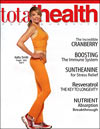






0 Comments:
Post a Comment
<< Home